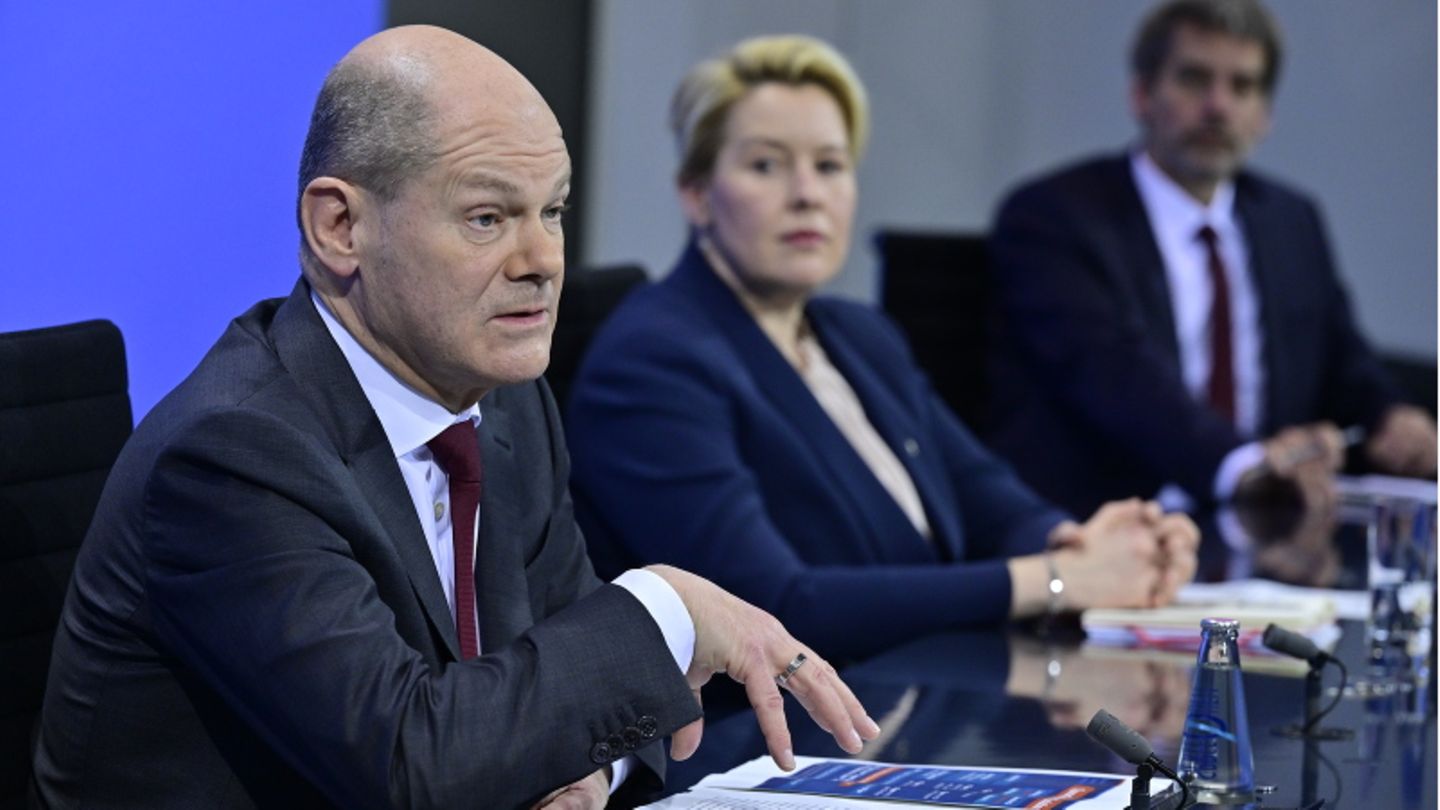In view of the exploding corona numbers, the expert council advises preparing stricter measures. Parts of the opposition, on the other hand, are calling for an early exit strategy. A look at the agenda of the upcoming federal-state meeting.
Germany is in the middle of the omicron wave. While the number of corona infections is breaking new records every day, Chancellor Olaf Scholz is meeting again this Monday with the heads of the federal states to discuss how to proceed in the pandemic. It is already becoming apparent that the federal-state government group largely intends to stay on course. However, there are likely to be changes in the shortage of PCR tests and in the quarantine periods for hospital and nursing staff.
According to Federal Minister of Health Karl Lauterbach (SPD), the omicron peak with several hundred thousand new infections every day is imminent in mid-February, as he confirmed on ZDF (“Berlin direct”). The Robert Koch Institute reported 63,393 new infections within one day on Monday, the seven-day incidence per 100,000 inhabitants climbed to 840.3. Things are also getting tighter in the intensive care units: the number of Covid intensive care patients has risen by 28 to 2426 for the first time since mid-December.
These are the most important points that Chancellor Scholz and the Prime Ministers want to talk about from midday:
Corona situation: Expert advice advises tightening
The Federal Government’s expert council had advised maintaining the existing measures, but preparing further steps as a precautionary measure if critical marks were reached, for example in the case of hospital admissions.
In the draft resolution for the consultations available to the German Press Agency (as of Sunday, 6 p.m.), there is talk of the former, but not of the latter: It was “agreed that the rules in force so far continue to apply”. The chairman of the Prime Ministers’ Conference, North Rhine-Westphalia’s Hendrik Wüst (CDU), said on RTL and ntv: “The core message is now: No relaxation!” Scholz had already told the “Süddeutsche Zeitung”: “We don’t need a course correction.”
The problem, however, is that courts in some federal states have overturned existing regulations, most recently the 2G rule in retail in Saarland, Bavaria and Lower Saxony, which only granted access to those who had been vaccinated twice and those who had recovered.
Resolution template: “Will develop opening perspectives”
Some politicians from the FDP and CSU are already calling for a plan for future easing. CSU regional group leader Alexander Dobrindt told the “Welt” that he expected the group to come up with a clever strategy to “move out of the pandemic little by little”. And: “It is important to recognize and absorb the effects of fatigue in society.” The head of the FDP state parliamentary group in North Rhine-Westphalia, Christof Rasche, demanded easing at major events and that the 2G regulation in retail and 2G plus in restaurants be abolished.
Federal Minister of Justice Marco Buschmann from the same FDP state association is a little more cautious: if the peak has been passed and the numbers in the hospitals have also fallen, the measures would have to be relaxed, he said on ARD (“Anne Will”). “This is of course.” The rather cautious Minister of Health Lauterbach sees it similarly: “Once we have that behind us, then of course the restrictions cannot remain. And then you would open them up step by step. It is right to consider that now,” explained Lauterbach. Wüst pointed out that the principle of proportionality always applies to all measures.
The draft resolution says: “The federal and state governments will develop opening perspectives for the moment when an overload of the health system can be ruled out.” This is not explained in detail. However, the proposal is only a basis for discussion – some things could change before the decision is made.
Prioritization of PCR tests planned
The increasing number of infected people means that PCR tests are becoming scarce. Lauterbach, with the approval of his state colleagues, has therefore proposed that these particularly precise laboratory tests should only be used to a limited extent – and the federal and state governments will probably decide to do so. According to the draft, PCR tests should be concentrated on risk groups and on employees who care for and treat them. Mentioned are older people and other risk groups, employees in clinics, medical practices, nursing homes and integration assistance facilities for people with disabilities. Lauterbach is said to be “working intensively on expanding the PCR test capacities”.
Teachers’ associations also wanted to see their profession included in the PCR prioritization list. Bremen’s mayor Andreas Bovenschulte (SPD) told the editorial network Germany: “I can understand the wish of those affected, but I have my doubts.” He pointed out that schoolchildren do not have an above-average risk of serious illnesses.
Reduce quarantine and isolation periods
They have already been changed for the general public. Now the previously strict deadlines for hospital and nursing staff are also being shortened: According to the draft, infected staff can test themselves early after seven days with a certified rapid antigen test if they have been symptom-free for 48 hours; otherwise it stays at ten days. As contact persons, they can also end the quarantine after seven days with a negative test. If they have a booster vaccination as contact persons or are otherwise freshly vaccinated or recently recovered, the quarantine does not apply.
This is unclear, details on this from an earlier version of the template were deleted again. In any case, after the consultations, the applicable test regulations must first be revised and then probably implemented in the federal states.
Vaccination obligation only on the sidelines of the MPK
The planned general obligation is only a marginal topic in the consultation proposal. The federal and state governments therefore confirm their necessity. The health ministers had also called for the new vaccine Novavax to be offered preferentially to unvaccinated clinic or nursing staff who are already subject to facility-related vaccination requirements from March. It is considered a kind of dead vaccine and could therefore not be subject to the reservations of some vaccine skeptics about the mRNA vaccines from Biontech and Moderna. However, the advisory draft only points out that it will be available from the end of February.
The vast majority thinks it is right that the rules will not be relaxed. According to an online survey by the YouGov Institute for the dpa, around a third find the current measures just right (35 percent) or too lax (34). Only a quarter (24) are for loosening.
Source From: Stern
David William is a talented author who has made a name for himself in the world of writing. He is a professional author who writes on a wide range of topics, from general interest to opinion news. David is currently working as a writer at 24 hours worlds where he brings his unique perspective and in-depth research to his articles, making them both informative and engaging.




